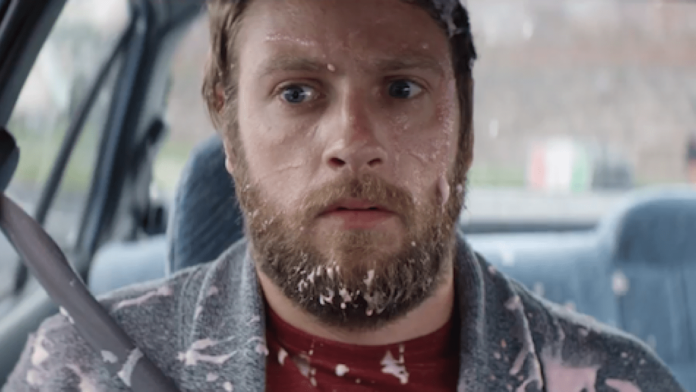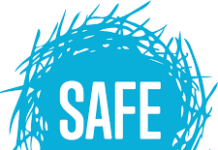A bill aiming to curb impaired driving has been derailed and will now criminalise thousands of non-impaired drivers, especially cannabis users.
If passed as it stands, the Land Transport (Drug Driving) Amendment Bill will create a new regime of random roadside driver testing (RDT) under which police will run checkpoints, or randomly pull over drivers, to check if they are impaired by any of a list of 25 drugs.
A low level of impairment will attract a fine, while a higher level is deemed a criminal offence. That’s consistent with the approach taken for drink driving, and on the surface it may seem fair enough.
But as always, the devil is in the details. I had called a previous version of the Bill “pretty good” – but the Bill has changed and that rose-tinted assessment is now out the window.
The Bill had originally been introduced by Green MP Julie Anne Genter in her capacity as Associate Minister of Transport in the previous parliament.
The justification was ESR research showing that in one year more than 100 deceased drivers had drugs in their system. Most were cannabis, followed by methamphetamine, and it was on par with the total deaths in which alcohol was a factor. That is indeed shocking – but is it right?
Those listed by ESR as drug drivers were those with any trace over zero, whereas the drink drivers were only included if their levels were over the legal limit. If the “drug drivers” had the same criteria the figures would be very different. Such an analysis it yet to be presented.
In any case, the Bill proposed to calibrate the testing to detect impairment, at a level consistent with the legal drink driving limit. This is important as otherwise the Bill would contravene the Bill of Rights which guarantees our freedom of movement, and it would also just be a really stink thing to do.
A bunch of experts were convened to assess the evidence and calculate the “per se” levels where impairment occurs. We were largely happy with this approach, especially as cannabis was expected by many to made legal in the 2020 referendum (interestingly, a new study from Canada released this week found no increase in ED hospitalisations following cannabis legalisation there).
But following New Zealand’s general election and referendum loss that year, the Bill was transferred to Michael Wood, the new Minister of Transport. It has become a dog’s breakfast.
Michael Wood has a lot on his plate, so taking his eye of this particular ball is somewhat understandable. But did he allow the experts on the technical committee to be bullied into abandoning their mission?
Rather than coming up with blood and saliva concentrations that equate to the legal level of alcohol impairment, after meeting Australian law enforcement they rather lamely advised Parliament’s Transport Committee that it was too hard and we should just do what the Aussies do. That is, use their error-prone devices and prosecute cannabis users at a level that is below impairment. Their report is here.
Under the Bill as it now stands, drivers will be asked to perform two saliva tests. If they fail both they can pay an infringement fine and will be banned from driving for 12 hours, or they can choose to have a blood test which may be used as evidence to prosecute them in court.
The reason drivers will be asked to perform two saliva tests is because the test devices themselves – which are used in Australia – are somewhat unreliable. They often pass an impaired person or fail someone who hasn’t taken anything. Taking the test twice is somehow making up for that. The law of averages is good enough, it seems.
But if an officer chooses they can (under s71F of the Bill) make any driver perform a Field Sobriety Test instead of the saliva tests. The FST result is the officer’s opinion formed from their observations of a driver’s ability to perform tasks such as repeatedly walking a straight line or balancing on one leg while estimating the elapsing of 30 seconds (they must be within 1 second to pass).
Forming these opinions can be open to intentional or unintentional bias. We all know, for example, that Māori are more likely to come to police attention, and more likely to be searched for cannabis. Māori are less likely to be warned, and more likely to be arrested, prosecuted, convicted, and imprisoned.
If a driver fails the FST, or if the driver chooses to do a blood test instead of (or in addition to) the saliva tests, a blood sample would be taken. If testing finds levels of a drug above what is termed a tolerance level, the driver would be fined between $200 and $4500.
If the test finds levels of a drug above what is termed high risk, the driver would be convicted of a criminal offence, get a criminal record, may be imprisoned and must be disqualified from driving for six months on the first offence (rising to two years jail and a fine up to $6000 for third offences). There are additional offences for driving with drugs and alcohol, and for drivers aged under 20.
Some people might say “but drugs are illegal, they get what they deserve!” But putting aside that half this country just voted for full commercial legalisation of cannabis and many Nopers would have supported decriminalisation – this is a driving law, not a drug law.
Ethically and legally this Bill must be limited to reducing impairment on the road, not used as a tool to detect and punish those who choose certain drugs.
There are some good aspects to the Bill:
- It covers a wide range of substances including many that are more psychoactive than cannabis.
- The public will be told what the levels are.
- Prosecutorial evidence will be based on blood not saliva.
- There is a defence for medicinal cannabis use.
But that defence means a patient with serious or life-threatening conditions will be arrested and must get themselves to court to prove they were acting under the instructions of their doctor.
There are other fundamental issues with randomised drug testing (RDT):
- A weak and unclear association of cannabis use with vehicle crash culpability – in fact many studies show cannabis has no effect on driving safety.
- Saliva testing in particular is not a reliable indicator of impairment.
- Random testing is expensive ($34 million estimated annual cost) and time consuming for drivers and officers alike (imagine the logistics of a roadblock capturing 15% of the population!).
- Erroneous claims that the proposed limits “avoids capturing people who are unlikely to be impaired”.
- Random detainment and testing breach our Bill of Rights, so must be clearly and strongly justified.
Australian driving researcher Prof Michael White, of the University of Adelaide, says the setting of impairment and criminal limits for blood-THC ultimately rests on the false assumption that there is an alcohol-like dose-response relationship between concentration of blood-THC and degree of impairment.
“But no such relationship exists,” he says in a recent newsletter to policymakers. “The assumption is pseudo-scientific nonsense. It is universally accepted amongst experts in this field that there is no cut-off level of blood-THC that can be used to reliably identify impaired drivers.”
Prof White pointed out that “the nonsense of setting blood-THC impairment limits” has been considered in some depth, including a systematic review of the relevant evidence by McCartney et al (2021) which concludes:
“The use of per se limits as a means of identifying cannabis-impaired drivers should therefore be re-considered. Indeed, it seems there is a significant risk of unimpaired individuals being mistakenly identified as ‘cannabis-impaired’ (and vice-versa) under this approach” (p. 8).
The experts on the technical committee have allowed themselves to be bullied into accepted per se drug-driving concentration limits that do not measure impairment and should not be enacted into law. Prof White says they should be “ashamed of themselves” for succumbing to the bullying.
It’s up to the Minister of Transport Michael Wood to fix this mess. Get those experts to finish their job and come up with numbers that accurately measure impairment and give us a Bill we can all support. While you’re at it, give us drug policymaking that won’t continue to throw Māori under the bus.
—
Chris Fowlie is the president of the National Organisation for the Reform of Marijuana Laws NZ Inc; developer of the CHOISE model for cannabis social equity; CEO of Zeacann Limited, a cannabis science company; co-founder of the New Zealand Medical Cannabis Council; co-founder of The Hempstore Aotearoa; resident expert for Marijuana Media on 95bFM; cannabis blogger for The Daily Blog, and court-recognised independent expert witness for cannabis. The opinions expressed here are his own.





To think it was Julie Ann Genter who initially introduced a cannabis bill.
and for the first time it was announced a minister couldnt represent a bill they introduce so it was handed to a rookie.
We made medical an issue because the prices were too high and access was difficult, well access is only for a limited range of CBD medicines and THC seems almost missing entirely.
And the prices? still beyond what a beneficiary can afford and no subsidy on offer.
Absolutely nothing has changed in real terms.
And now the person who kicked it all off is giving us yet another flawed testing method.
Anybody who thinks the Greens are pro green are clearly deluded.
Its like maybe we should have just shut up because anything these politicians touch just turns to shit.
It’s very interesting legislation, well worth taking a look at, and long overdue. It would be well worth looking at to introduce into law in the longer term. To rush in, as was done with the new abortion laws, would be foolish I feel. There’s a lot to consider here, and like other recently introduced legislation there’s an emotional element to it in the context of the New Zealand voting public.
But I do also feel that, when contemplating introducing legislation into law, it should be considered if it is necessary. That goes for this intended legislation. It goes for any legislation. The question to be posed to our lawmakers is thus: is it necessary to pass this legislation into law?
Because, really, what is the point of making laws if the laws are not really necessary to be put into place? There is no point, in that case. Also, the other question which always needs to be answered is, how is the law going to be enforced, and can it be enforced effectively?
The important part of introducing new laws is that Politicians can look like they have done something about an issue and the Police can selectively interpret & enforce the new laws when they feel like it. Currently the Police are having a hard time keeping up with serious crimes & keeping a lid of all the other crazy stuff that’s going on out in society.
Having previously worked in drug detection, I was never impressed with the performance of oral tests. They seemed to be what you used if you wanted to do drug testing but didn’t want anyone to fail. I had two positives in two years with the oral tests, both with very high levels of meth/codeine in their systems. Never had anyone fail for cannabis. Maybe they’ve improved the devices now, I don’t know.
The calibration of levels for urine tests seemed a bit harsh for THC and generally indicated use rather than impairment.
Impairment is pretty hard to gauge without having done a baseline pre-impairment test, as some people’s impaired performance will be better than others unimpaired results, depending on how impairment is tested. It is much easier to have a pass/fail test based on levels rather than trying to have some sort of subjective test to determine impairment levels. Also someone who had a joint at the weekend may be considerably less impaired than someone just finishing a 12 hour night shift with a young family at home.
Interestingly in most cases where people failed for THC they were acting pretty normal, however those failing for meth were generally not and in some cases you had be fairly careful. If people failed on alcohol, they were definitely impaired at the time of the test.
However just by looking at someone, it is pretty much impossible to gauge impairment. I had someone blow over 1300 on the breathalyser and it surprised me. I couldn’t smell any alcohol & I had been chatting with them normally prior to getting the result. I was so surprised I ran the test again and got a similar result. They seemed fine but would not have been safe on their drive to work, especially as the test was conducted over an hour after they’d arrived at work.
Judging by what you’ve written about the new law, it does look like it will be another of those “at the officers discretion” thing that just ends up reinforcing the systematic racism in our justice system.
As a disclaimer, I have no interest in using drugs & have been regularly testing myself for various roles.
I am not against drug tests as I believe if people are driving no drug or alcohol should be consumed before doing so .My only worry is I am told some drugs(synthetic and meths ) show up less than marajuana so this law may push users into this worse
drugs .
I knew if I read through it Maori would come into it….’We all know, for example, that Māori are more likely to come to police attention, and more likely to be searched for cannabis. Māori are less likely to be warned, and more likely to be arrested, prosecuted, convicted, and imprisoned.’
So 18% of the population are going to be targeted specifically?
If you are stopped at a checkpoint, or driving illegally (speeding, wrecklessly) immaterial of race, you are blowing into a breathalyser, and now possibly a drug test and if you fail either TOUGH!!! you are driving impaired and deserve all you bloody get and it’s immaterial what colour your skin FFS!
More of a crackdown on Cannabis users…I wonder if the Government is trying to play the ‘Law and Order’ card, knowing that many Kiwis will be changing their votes from Labour to another party in the 2023 election…
– This will allow Labour to use quotas to take cars and drivers off the road
– This will allow avenues for law-abiding citizens with controversial views to be targeted by the state.
– Obvious revenue gathering potential
Not sure how the Green party will get on campaigning for the legalization of cannabis with such laws on the books. I guess they travel in crown limos lol.
National will come out in support and be confused when they sink further in the polls, at least we’ll get some comedy with the ‘dogs breakfast’ – a little lite entertainment.
Any Party not Labour or the Greens should simply run on ‘legalizing/decriminaling weed’ and get the 48 odd % that did not get a hearing in the last referendum.
Any party. Go for it. There is actual votes in it.
Agree…good call Sabine
I’d like to see the introduction of compulsory pot smoking while driving and six months in prison for first offense tail gaters.
More police interference in matters where they are not needed and leading to ill will with the general populace.l
This is good point:
Rather than coming up with blood and saliva concentrations that equate to the legal level of alcohol impairment, after meeting Australian law enforcement they rather lamely advised Parliament’s Transport Committee that it was too hard and we should just do what the Aussies do. That is, use their error-prone devices and prosecute cannabis users at a level that is below impairment. Their report is here.
Under the Bill as it now stands, drivers will be asked to perform two saliva tests. If they fail both they can pay an infringement fine and will be banned from driving for 12 hours, or they can choose to have a blood test which may be used as evidence to prosecute them in court.
Too hard! Too hard! That is the problem with our governments today, they just want the money and to give the actual work to some agency or private company. Why not tender for the job of running government and let Ernst and Young and Price Waterhouse Cooper et al put in bids – then we will know which master we have got, and cut out the middlemen wnnabes from the populace putting themselves forward to be MPs – who seem to be lacking in judgment anyway. /sarc
What are or can there ever be effective safeguards to prevent the law from being used for an unintended noble cause purpose? e.g. obtaining DNA with a conveniently set up checkpoint.
More laws, more cost and I dont know exactly what will be involved but it is worth noting that saliva testing can pick up amphetamines? in ADHD meds if you have taken them recently. So how many hundreds of people are potentially going to get dragged in for an unnecessary blood test or have to go the expense of having to get a Dr’s certificate to carry with them.
I’ve always thought zero should be the level for alcohol simple, practical and makes the point ‘don’t do it’ it should be the same for drug driving zero level…
.BBBBBuutt I only had one spliff/drink last night
..tough you should have thought ahead….
but of course whatever the law we’ll fail to enforce it, mayhem will ensue, pearls will be clutched…cos that’s the one area we really do punch above our weight.
Comments are closed.